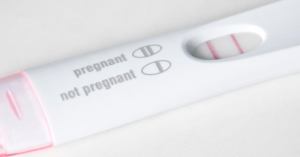It’s a sad reality that plays out during every national and international human crisis: scammers springing into action, looking for ways to take advantage of the vulnerable.
In the aftermath of 2005’s devastating Hurricane Katrina, the American Red Cross requested the FBI investigate more than a dozen fake websites intended to look like authentic Red Cross petitions for donations. Following Hurricane Sandy in 2012, a charity calling itself the “Hurricane Sandy Relief Effort” raised more than $500,000 for storm victims, but ended up using the funds to help relieve their own credit card debt.
Videos by PopCulture.com
NPR reports that prior to Hurricane Irma bearing down on Florida, scammers went so far to set up a GoFundMe purported to be Miami-born singer, Jason Derulo asking for help. While it was immediately shut down, it proves fraud stemming from times of distress is common, but equally difficult for hard-working, generous Americans to figure out the difference.
As Irma endures its damage in the Caribbean and set to ravage parts of Florida, the generosity of people living across the country and world unaffected is much needed. However, it is crucial to be aware of donating to relief efforts. If you are looking to help in the relief efforts, here are some legitimate sources on how to donate safely and how you can report if you sense fraud.
Go with your gut
In situations like this, you might be more prone to act with your heart, rather than your head. But it’s essential to think twice before letting anything leave your wallet. Look for charities or fundraises registered in your state by getting in touch with the National Association of State Charity Officials. If organizations are not registered, try committing to one that is.
Most importantly, be skeptical if an organization doesn’t send you further information about their background, programs and finances. Go with your gut and understand that legitimate organizations will be glad to provide you with more. If you believe a scam is taking place, contact the BBB to report what you know.
Know where your money goes
More than 500 domain names associated with Hurricane Harvey were registered as the storm hit Texas, according to a report from the Center for Internet Security. The majority of these domains included the words, “help,” “relief,” “victims,” “recover,” “claims,” and “donate.” With Irma approaching though, it’s crucial to exercise caution, especially when it comes to dubious crowdfunding accounts. If you suspect one with a faceless organizer or a celebrity, report it. GoFundMe has a strict policy and refunds donations if pages are investigated as fake.
But, always do your research first when it comes to donating your money and be skeptical of charities that have no history in disaster relief. For more information, check out the Better Business Bureau’s (BBB) Wise Giving Alliance, Charity Navigator, Charity Watch or GuideStar.
Beware of email attachments and links
Just because you might get emails from friends or see them post messages with links on social media, doesn’t mean they are from legitimate primary sources. The Center for Internet Security advises internet users to exercise caution when responding to individual pleas for financial aid on social media, crowd funding websites, or in an email that might be from a trusted source. While it might be a friend who sent it, their account might have been hijacked and is now sending out phishing emails, designed to get your information.
Give that text donation another thought
Before you text your donation, confirm that the charity is real. The onus is on you to get that right. But keep in mind that your contribution will not reach a charity until your next phone bill is paid. According to Forbes, the damages from Irma could run into an estimated $250 billion. In such cases, it’s better to donate directly to a charity via their website or center.
Report price gouging
With Florida declaring a state of emergency, businesses are subjected to fines up to more than $25,000 if items like food, water, gas and lumber are priced gouged. Residents complained earlier this week that some Amazon sellers were jacking up prices for emergency supplies prior to the disaster.
According to the Attorney General, price-gouging statute makes it “illegal during an emergency to sell items that ‘grossly exceed’ the average price during the previous 30 days.”
If you see a “gross disparity” between the prior price and the current charge, it is considered price-gouging. Obtain as much information as possible in form of estimates, invoices and receipts for size, quantity, manufacturer numbers, UPC, etc. Report this information to the Florida Attorney General’s Price Gouging Hotline at 1-866-966-7226.
Photo credit: iStock








